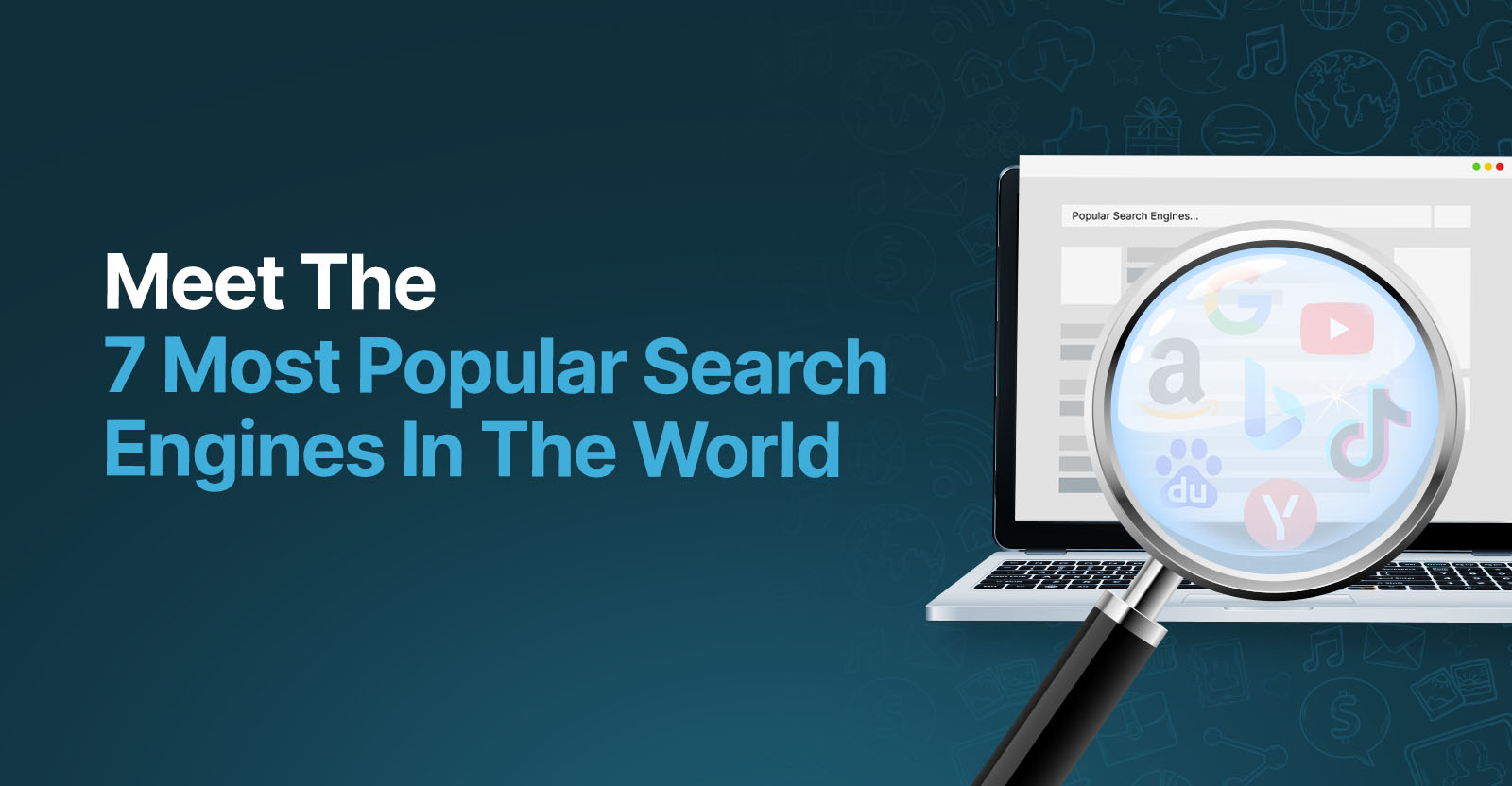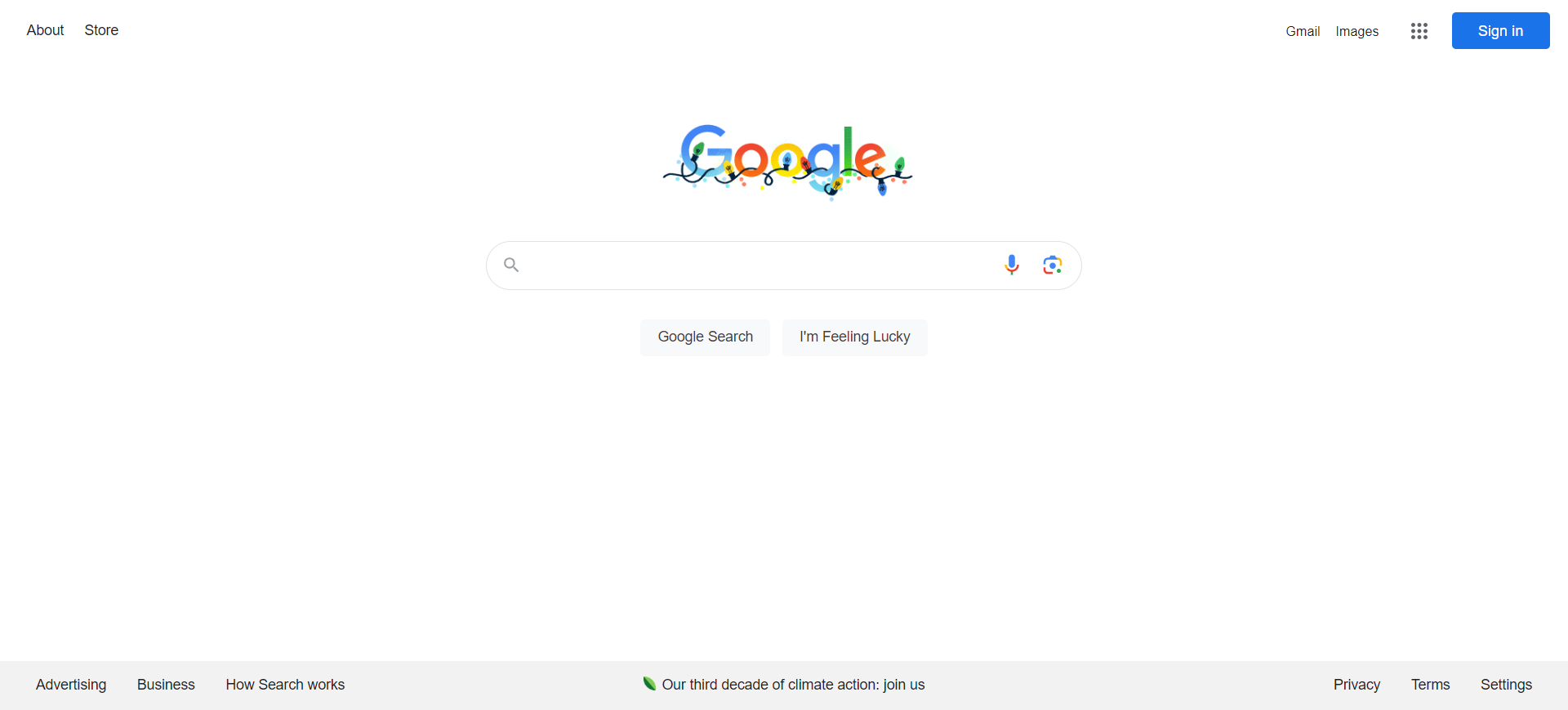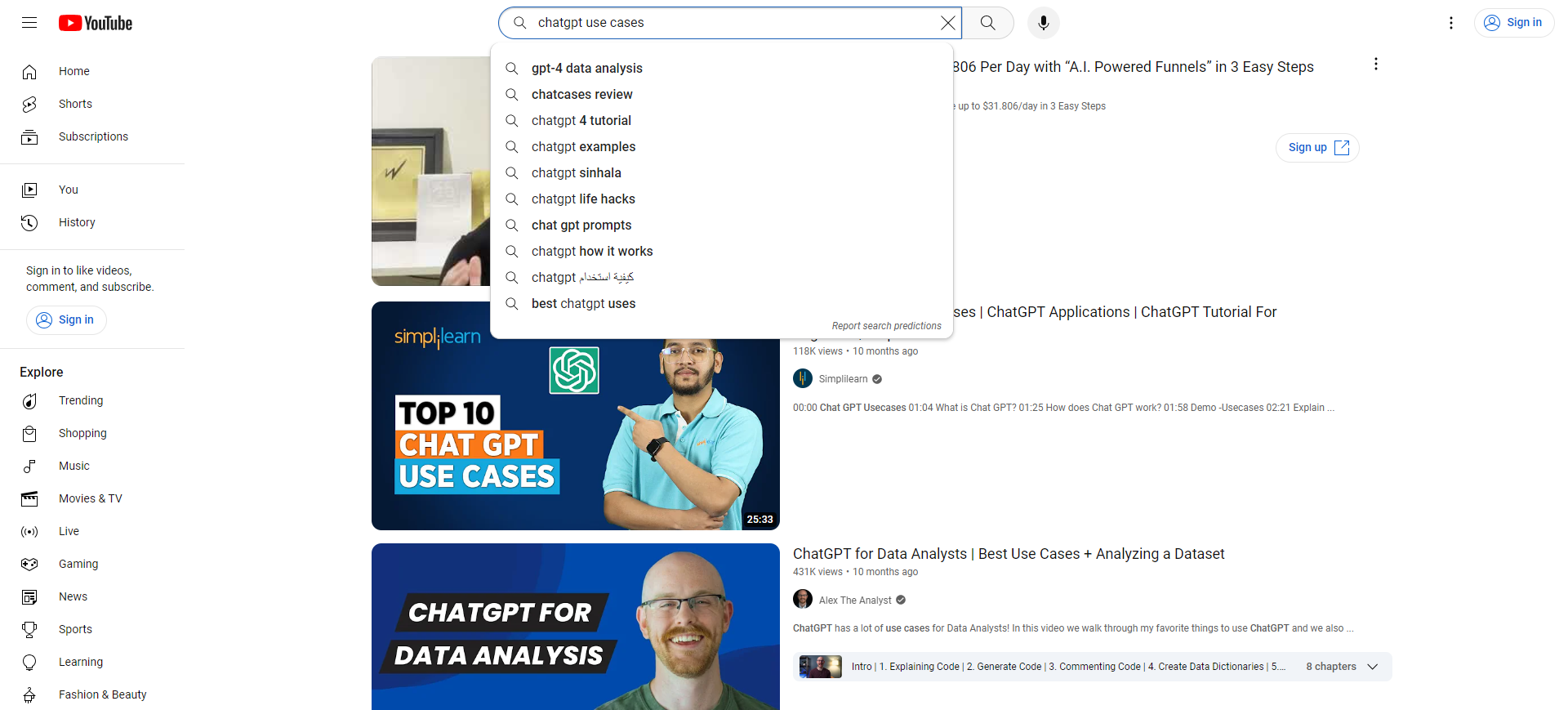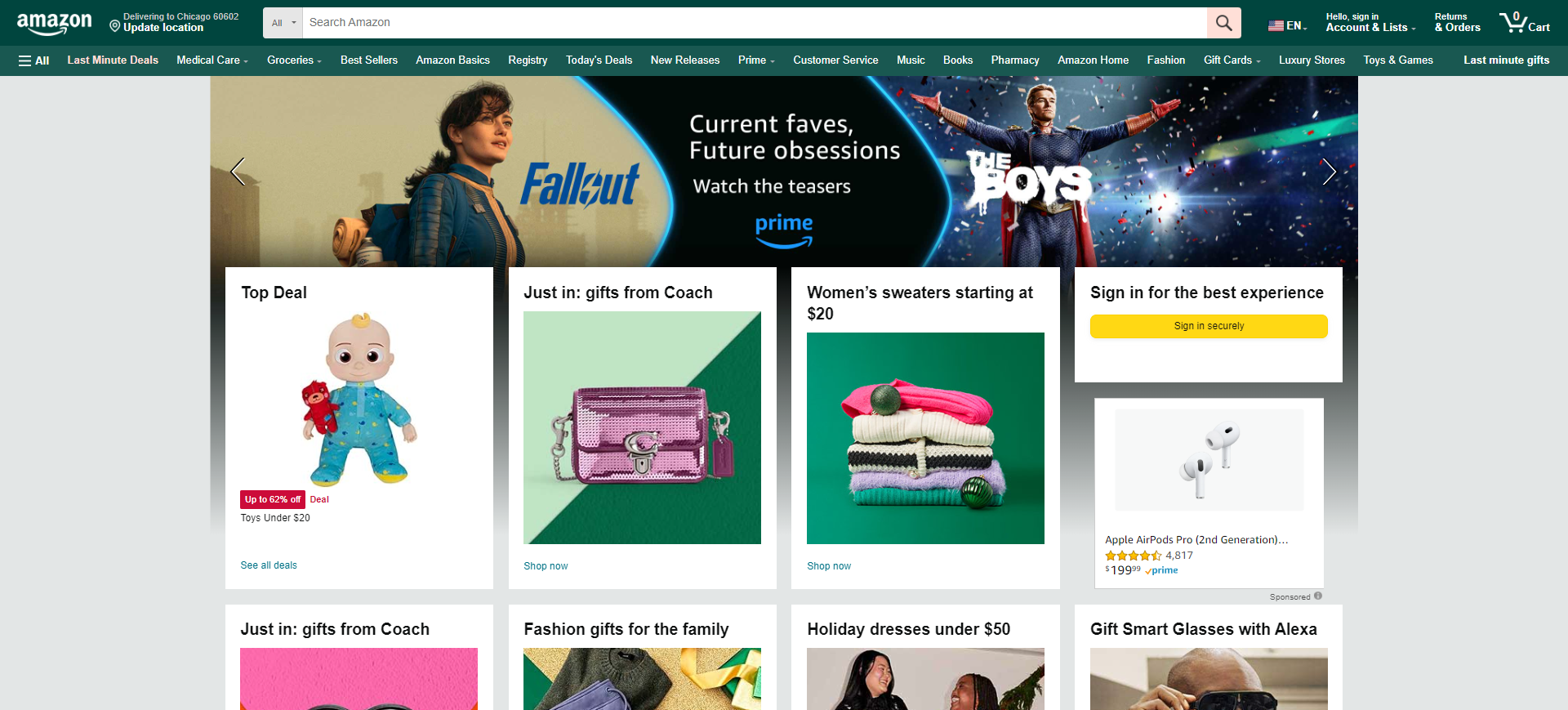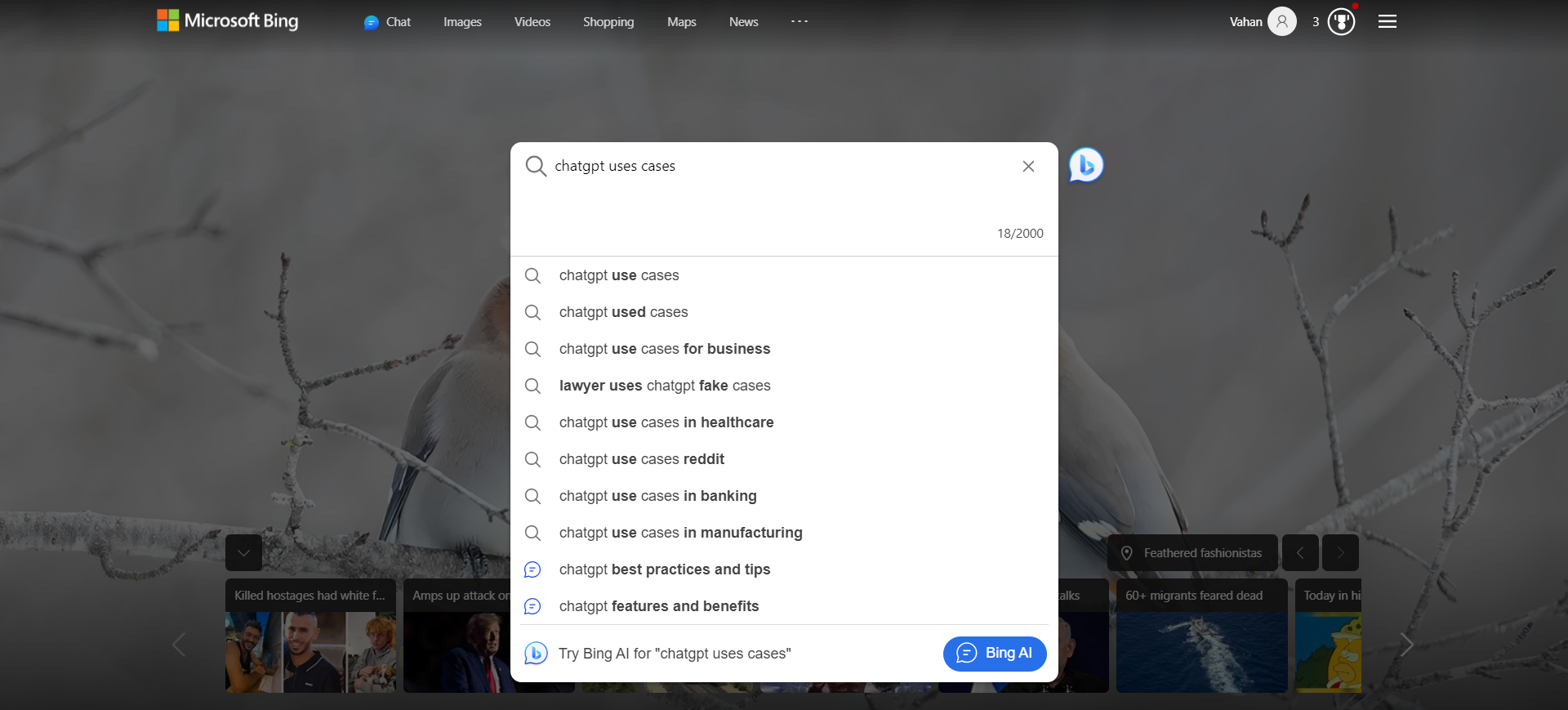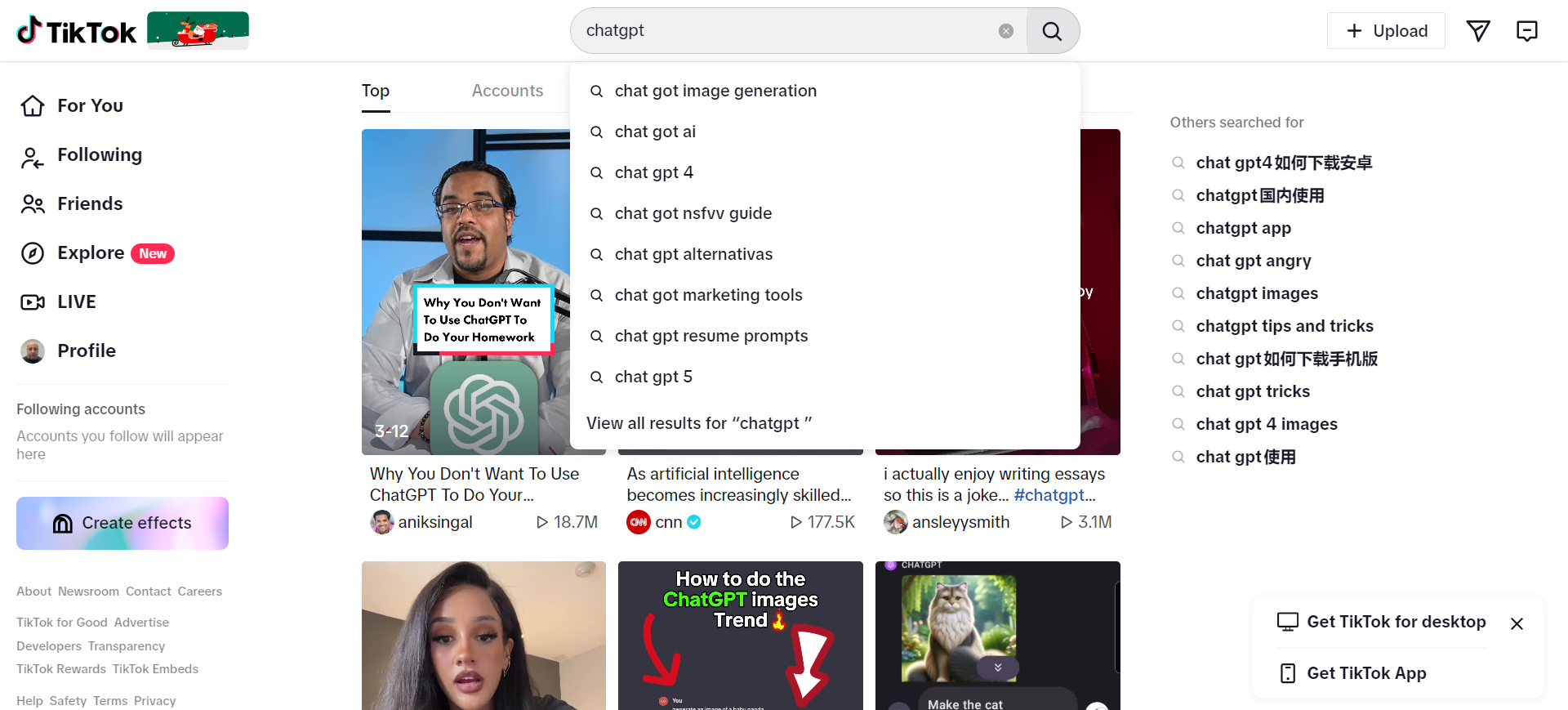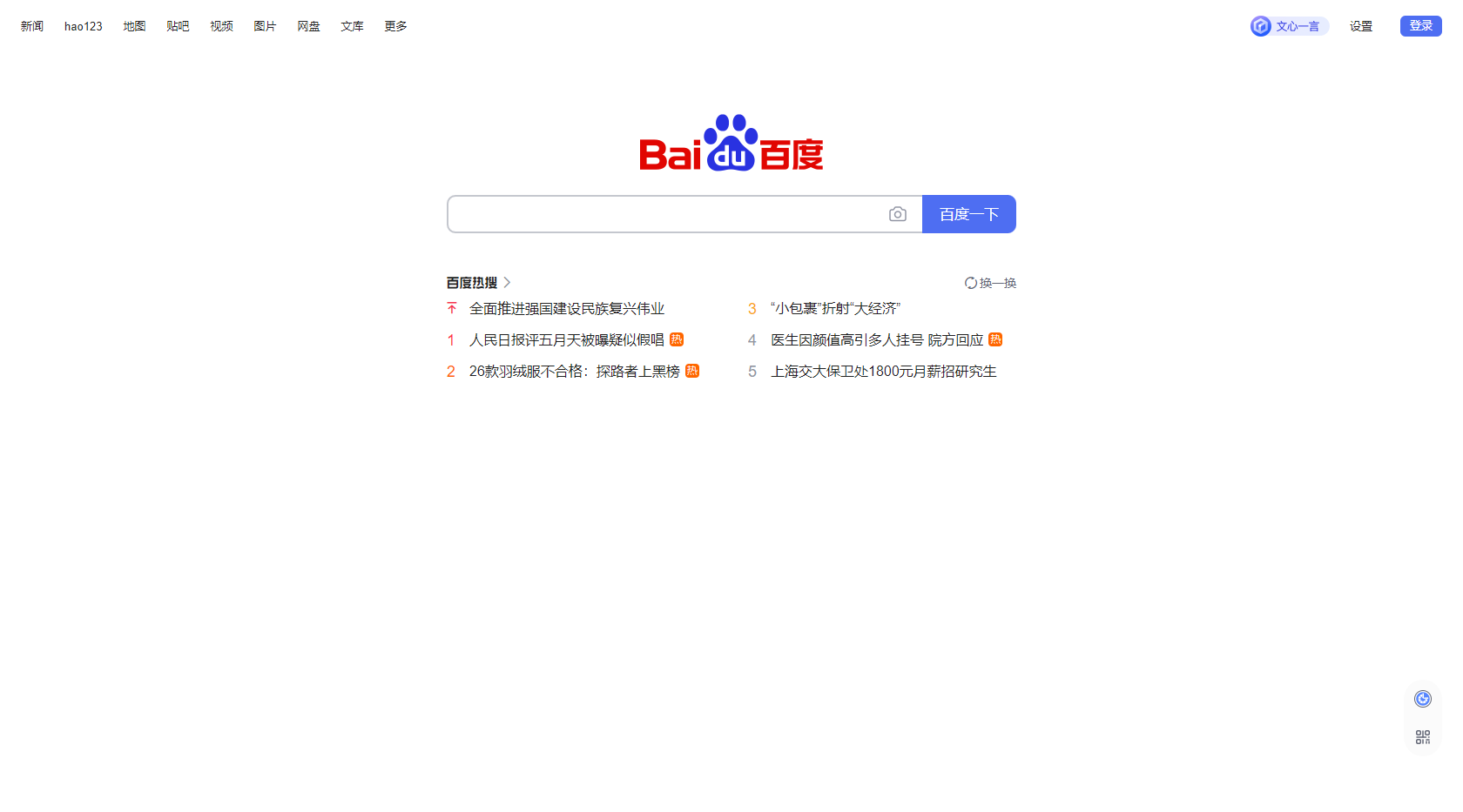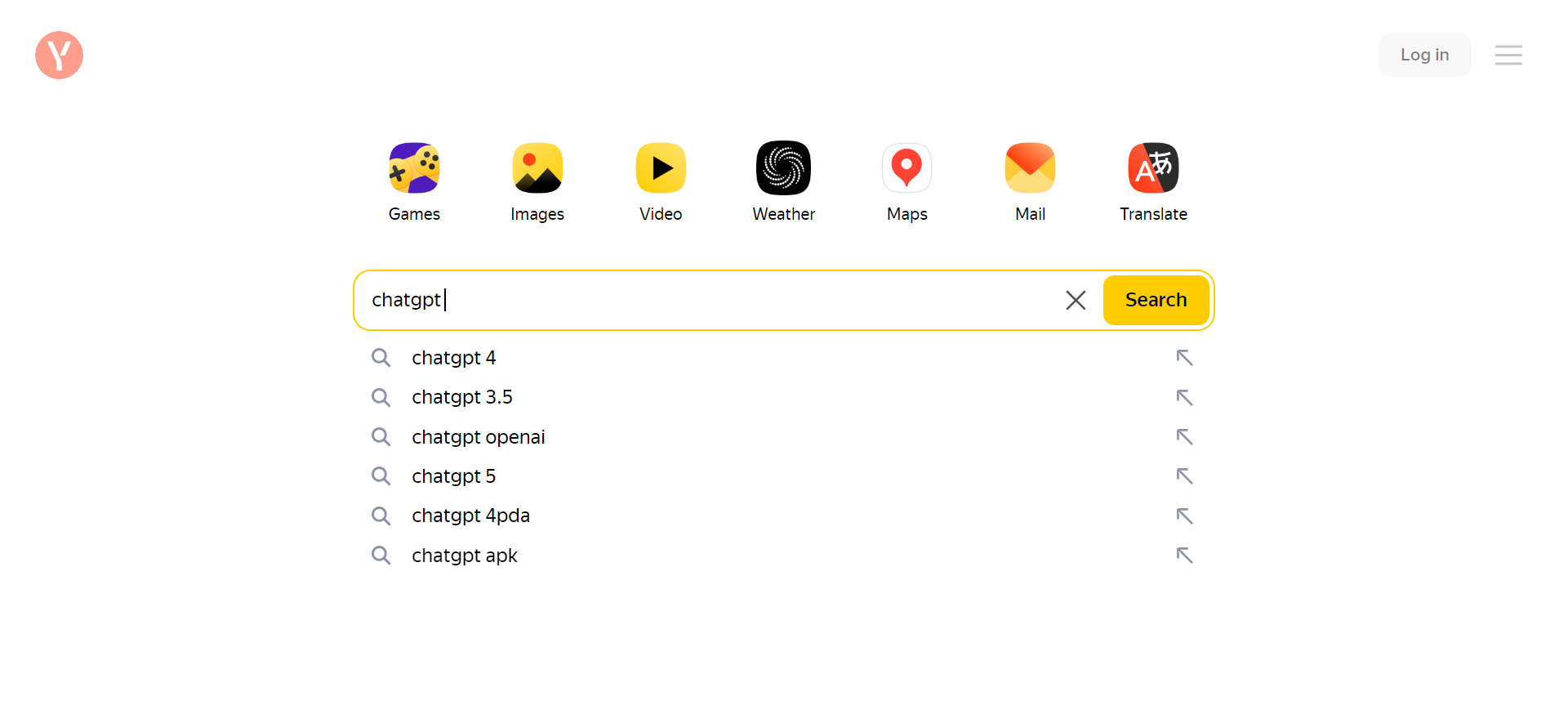The past year was a particularly transformative year for search, witnessing significant advancements in search engine algorithms, artificial intelligence integration, and user experience enhancements.
Understanding the mechanics of each search engine goes beyond mere theoretical knowledge; it’s a strategic imperative for anyone looking to enhance their website’s visibility and drive traffic.
This article provides a comprehensive overview of the seven leading search engines that dominate the market, offering an insightful look into the latest AI advancements reshaping the search landscape.
Additionally, the article features curated links to top resources and articles, offering valuable strategies for effectively marketing to and monetizing these platforms.
This well-rounded approach ensures readers gain a thorough understanding of the current state of search engines and how to leverage their potential in the ever-evolving world of digital marketing.
1. Google
With over 91.47% of the search market share, one hardly needs to introduce readers to Google. However, it clearly needs to head up any list of search engines.
Created as a research project in 1996 by Sergey Brin and Larry Page, they offered to sell their engine in 1999 to Excite for a whopping $750,000. The offer was rejected, putting that decision at the top of my list of “bad business calls.”
Google’s parent company, Alphabet, is now worth about $2.026 trillion as of this writing.
Apart from powering its own search results, Google also provides the search results for a wide array of other engines, including the old favorite Ask.com.
Pros & Cons
The big appeal to ranking on Google is the massive potential traffic.
The downside is that everyone else wants this traffic, making organic search on Google the most competitive and paid search often much more expensive than on other sites.
Further, many argue that Google is moving searchers away from clicking through to websites and toward fulfilling their needs and intents directly on the Google website via SERP features like:
- Featured Snippets.
- Instant Answers.
- Local Pack.
- Image Pack.
- People Also Ask.
- Google Ads.
- Shopping Ads.
- Product Comparisons.
- Top Products.
- Related Searches.
- Carousels.
- Tweets.
- Google Hotels.
- Google Flights.
Thus making the competition more costly with less potential reward.
Additionally, the recent introduction of Google’s Search Generative Experience (SGE) is poised to create more challenges for marketers, as it will provide an interactive and dynamic search experience by using AI to generate content and answers directly within search results.
This could include synthesized text or composited images that are created in response to specific queries.
Optimization Tips
A few valuable resources on marketing on Google can be found at:
- Search Engine Journal’s SEO Guide.
- Search Engine Journal’s On Page SEO Guide.
- Google’s Search documentation.
- Google Webmasters on YouTube.
- Search Engine Journal’s PPC 101 Guide.
2. YouTube
YouTube was founded in 2005 by veterans of PayPal and purchased just over a year later by none other than Google, giving it control over the top two search engines on this list.
YouTube is the second largest search engine, with over 2.5 billion logged-in users per month and over 1 billion hours of video watched on the platform each day.
If you’re curious about the first video uploaded (which has over 336 million views), it’s a 19-second clip of co-founder Jawed Karim at the zoo.
Not exactly MTV playing “Video Killed The Radio Star,” but it got the job done.
Pros & Cons
As with Google, it’s easy to see the allure of such massive traffic, but that’s also a pitfall for marketers.
Using YouTube as a vehicle for traffic cannot be underestimated in its impact – if successful.
However, considering that more than 500 hours of video are uploaded to YouTube every minute, it can be challenging to stand out.
With paid opportunities under the Google Ads system, it can also get pricey to compete on that front.
That said, if you can get the attention of your target demographic on YouTube with amazing campaigns such as those by MrBeast or Blendtec, you can get incredible exposure.
Optimization Tips
A few valuable pieces on marketing on YouTube can be found at:
- YouTube SEO: How To Optimize Videos & Rank Higher by Sam Hollingsworth.
- How To Create And Optimize Your YouTube Channel by Jessica Foster.
- How to Rank a Video on YouTube & Google by Jeremy Knauff.
- YouTube SEO from Basic to Advanced: How to Optimize Your Videos by Sam Hollingsworth.
- YouTube’s Algorithm: What You Need To Know In 2023 by Matt G. Southern.
- YouTube Reveals New Details About its Algorithm by Matt G. Southern.
- How YouTube Recommends Videos by Matt G. Southern.
- Hook Viewers Immediately: YouTube Algorithm Insights From YouTube’s Creator Liaison by Matt G. Southern.
- YouTube Explains How Shorts Algorithm Works by Matt G. Southern.
- Top Video SEO Strategy Tips [Podcast].
3. Amazon
Amazon was launched in 1995 and is considered one of the first large companies to sell goods online.
It started out selling books online but expanded rapidly. In 1999, founder Jeff Bezos won Time’s Person of the Year for making online shopping popular and accessible.
So successful is Amazon that almost half of all online shopping searches begin not at Google (31%) but at Amazon (50%). Amazon’s A9 algorithm is tailored for ecommerce, focusing on purchase intent and user behavior.
Amazon’s acquisition of Cloostermans, a leader in supply chain mechatronics, significantly enhances its warehouse automation capabilities and, coupled with the acquisition of iRobot, a robot company, this suggests we’ll continue to see the company’s influence and expansion further in the future.
Pros & Cons
The pro, as with Google, is obvious: scale.
If you sell blue widgets and you want to be where people search for them, then you want to be on Amazon.
In fact, some can argue, based on the numbers, that having a ton of great and useful content might help you rank on Google and get all those folks trying to figure out what blue widgets are and which one they need – but unless you’re on Amazon, you won’t be where they are when they’re actually looking to convert.
The downside is that the competition is fierce, the pricing and other details are easy to compare vs. competing products, and the cost of selling on Amazon can get pretty high at times.
Your unique value-adds are difficult to convey in a product-centric system. And developments such as Amazon’s decision to slash affiliate payouts introduce additional challenges.
Entering early can be difficult if you don’t have a unique product, as sales and reviews are important for rankings.
For the same reason, well-established companies with good products and reputations can hold their placements well.
There are also CPC options for product promotion. It can be pricey, but you’re also getting the searcher at the buy end of the cycle, so what engine isn’t?
Alexa’s impact on searches and sales is also an area to watch.
To prepare yourself for the possible scenario where Amazon wins (or at least does well in the personal assistant race), the third article below discusses it further.
Optimization Tips
A few valuable pieces on marketing on Amazon can be found at:
- Amazon’s Search Engine Ranking Algorithm by Loren Baker.
- An Advanced SEO Guide to Top Rankings on Amazon by Robyn Johnson.
- A Guide to Amazon Indexing & How to Check Your Keyword Indexing by Robyn Johnson.
- Amazon SEO Keyword Research: 3 Proven Methods by Robyn Johnson.
- 10 Top Amazon Listing Optimization Mistakes & Hidden Opportunities by Robyn Johnson.
- 9 Tools To Scale Your Amazon Marketing & Sales by Loren Baker.
Subscribe for Daily Search Insights
AI, PPC, and digital marketing news distilled to fuel success. Join the other 75k marketers!
4. Microsoft Bing
Bing replaced MSN Search as Microsoft’s answer to Google launched in 2009. It currently has 3.95% of the search market share worldwide and 7.01% in the US.
In recent times, Bing has made significant advancements, particularly with the introduction and development of Bing Chat, recently renamed as Copilot. It allows users to engage in a dialogue with the search engine, posing questions and receiving responses in a conversational format.
Bing has been making a lot of plays in the advertising space in their effort to catch up with Google, adding a number of features to Microsoft Ads and launching pubCenter, an analog of Google AdSense – though they are generally all in efforts to play catch up or bring its system in line with Google’s for import ease and manager familiarity.
Pros & Cons
While Microsoft Bing has innovated with AI chat capabilities and offers unique features, its growth in market share is hindered by the dominant position of Google.
One of the key factors influencing Bing’s market position is the browser ecosystem. Google Chrome, being the most popular web browser globally with 65.72% market share, naturally drives users towards using Google Search.
Safari, the default browser on Apple devices, also plays a role in Bing’s market challenges. As Safari comes pre-set with Google as its default search engine, the majority of Apple device users are more likely to use Google Search.
While Microsoft Bing doesn’t have the market share that Google has, it is respectable in many markets, including the US and the UK.
Organically, its algorithms aren’t as sophisticated as Google’s.
This gap in sophistication tends to make them easier to understand, predict, and optimize for. While this won’t be an indefinite state, it’s likely to be true for the short-term future.
Due to the lower traffic, fewer SEO pros are vying for the top 10 positions and studying algorithms, providing good ROI for those who do.
On the ad side, there are less sophisticated systems to work with. Due to the lower volume and ease of setup from existing Google Ads campaigns, the lower traffic can easily be made up for by the lower CPC.
Though from experience, I do have to warn you, its understanding of close variants would be laughable if it didn’t bleed so much money. That aside, I have found the ROI can often be better on Microsoft Bing, though the number of conversions is often far lower.
Note: This isn’t to say to simply copy your Google Ads campaigns into Microsoft Ads and be done with it. Each engine needs to be managed individually for its CPC and demographics (resulting in different conversion rates, etc.). However, copying campaigns can greatly speed up the setup process.
Optimization Tips
A few valuable pieces on marketing on Bing can be found at:
- Bing Webmaster Guidelines.
- Bing Ranking Factors Revealed in Update to Webmaster Guidelines by Matt Southern.
- Bing Explains SEO For AI Search by Roger Montti.
- 5 Big Ways Bing SEO Differs From Optimizing For Google by Aleh Barysevich.
- Bing’s AI Algorithm: Insights From Fabrice Canel’s Pubcon Keynote by Matt Southern.
- 8 Local Search Engine Optimization Tips for Bing by Chuck Price.
5. TikTok
TikTok, with over 1.6 billion users worldwide, is increasingly being utilized as a search engine, as an increasing number of Gen Z individuals are now using TikTok for their search needs.
It is the leading social media platform in terms of the duration users spend on it.
Statistics show that, on average, users globally who have an Android device dedicate approximately 31 and a half hours each month to browsing and engaging on TikTok.
Globally, users are turning to TikTok not just for entertainment but for information and discovery, challenging the traditional dominance of search engines like Google.
Pros & Cons
TikTok’s emergence as a search engine is characterized by high user engagement, with its visually appealing and trend-centric content resonating particularly with younger audiences.
Its adaptability to current trends allows TikTok to provide timely and relevant information.
However, the platform faces challenges regarding the reliability and depth of information, with less transparent search algorithms compared to traditional search engines like Google.
Additionally, while TikTok’s ad capabilities are engaging, they might not match the advanced targeting and analytics offered by Google’s established advertising system.
Optimization Tips And Resources
- How TikTok’s Search Algorithms Power Content Discovery by Greg Jarboe.
- 10 TikTok Marketing Tips & Best Practices by Jason by J. Zotara.
- TikTok Ads For Beginners: A Complete Guide & Steps To Success by Andrea Atzori.
- How TikTok Recommends Videos.
- TikTok Shopping 101: Everything You Need To Know by J. Zotara.
6. Baidu
Baidu was founded in 2000 and is the dominant search engine in China, with over 56.37% market share, where Google comes in at 2.22% and Bing at 27.98%.
A pivotal moment in Baidu’s AI journey was its showcase at the WAVE SUMMIT 2023, where it announced substantial enhancements to ERNIE Bot, its knowledge-enhanced large language model (LLM), which has 100 million users as of now.
Outside of China, Baidu holds little influence. Within the country, Baidu powers 3.3 billion searches per day.
Pros & Cons
The downside to Baidu is that it only gives access to one market. The upside is that that market is huge.
That said, it’s critical to understand that accessing the Chinese market is not like accessing any other (such is the curse of international SEO).
The visuals, verbiage, and customs are entirely different than other markets, and Google Translate isn’t going to help you win any customers over.
To access the Chinese market via Baidu, you need someone on staff who speaks the language and understands marketing to the culture (not just “someone on my team who took two years of Mandarin in high school”).
Overall, the organic algorithms are more simplistic than Google’s, and its paid systems can be easier once you’re set up – but that setup is more difficult if you reside outside China.
Optimization Tips
A few valuable pieces on marketing on Baidu can be found at:
- Baidu Ranking Factors for 2024: A Comprehensive Data Study by Marcus Pentzek.
- Google vs Baidu: Key Differences in SEO Strategy by Dan Taylor.
- Baidu SEO: A Guide to SERP Features & Ranking Signals by Dan Taylor.
- Baidu SEO: How to do SEO in China. An interview with SEO Zac – #CrawlingMondays 20th Episode by Aleyda Solis.
- 25 Things You Didn’t Know About Baidu by Julia McCoy.
7. Yandex
-
Yandex has its roots in a project started by two Russian developers to aid in the classification of patents in 1990 under the company Arkadia.
The term Yandex was adopted in 1993, standing for “Yet Another iNDEXer.” The Yandex.ru domain was launched in 1997. It currently powers about 72.31% of all searches in Russia and 0.21% globally.
On January 27, 2023, approximately 44GB of Yandex’s source code was leaked, providing an unprecedented look into the inner workings of the search engine, including its algorithmic structure from A to Z.
This leak was significant not only due to its size but also because it exposed over 17,800 ranking factors used by Yandex for website ranking in search results.
Pros & Cons
As with most smaller engines (compared to Google, at least), there is less traffic on Yandex – but the competition is lower, both organically and in paid.
The algorithms used by Yandex are less sophisticated than Google’s and well known; thus, easier to assess and optimize for.
Now the bad news: While Yandex’s algorithms are less sophisticated than Google’s, they have elements that make it difficult for outsiders – including a higher weighting on geolocation.
The paid system is obviously more flexible in this regard, and compared to Google, Facebook, and Microsoft Bing, it tends to be less expensive per click.
For example, ranking #1 for “casino” would cost over $55 per click in the US and only $0.82 on Yandex. Of course, that’s an English word, but even the Russian “казино” is only $1.54.
Optimization Tips
A few valuable pieces on marketing on Yandex can be found at:
- Yandex Data Leak: The Ranking Factors & The Myths We Found by Dan Taylor.
- The Ultimate Guide to Yandex SEO by Dan Taylor.
- 10 Biggest Differences Between Yandex & Google SEO by Dan Taylor.
Conclusion
Understanding the nuances of different search engines is essential for effective digital marketing and SEO strategies.
Platforms like YouTube and TikTok are redefining what it means to online search, extending beyond traditional text-based queries to multimedia content.
Meanwhile, engines like Baidu and Yandex cater to specific regional markets with tailored functionalities.
As we continue to witness technological advancements and shifts in user behavior, the landscape of online search and advertising will keep evolving.
Marketers and SEO professionals must stay informed and adaptable to leverage these platforms effectively.
Those interested in exploring further insights can read our article about Google alternatives.
This resource offers a broader perspective on the diverse range of search engines available, providing valuable knowledge for those looking to expand their digital marketing vision.
More resources:
- Great Search Engines You Can Use Instead Of Google
- How Search Engines Use Machine Learning: 9 Things We Know For Sure
- How Search Engines Work
Featured Image Credit: Search Engine Journal/Paulo Bobita
FAQ
What role does AI play in the future of search engines?
AI is set to play a crucial role in the future of search engines. It enables more sophisticated understanding of user queries through natural language processing, improves the personalization of search results, and enhances the accuracy of voice search functionalities.
Can search engines like TikTok and YouTube replace traditional text-based search engines?
While TikTok and YouTube have become popular for content discovery, they are unlikely to completely replace traditional text-based search engines.
How do search engines like Google track user activity?
Search engines like Google track user activity primarily through cookies, user account data when signed in, browser history, location data, and app usage, and IP addresses. This tracking enables them to personalize search results and ads, enhance user experience, and gather data for analytics.
Are there search engines that don't track user data?
Those who are concerned about their online data and tracking can use privacy based search engines like:
- DuckDuckGo
- Startpage
- Brave Search

